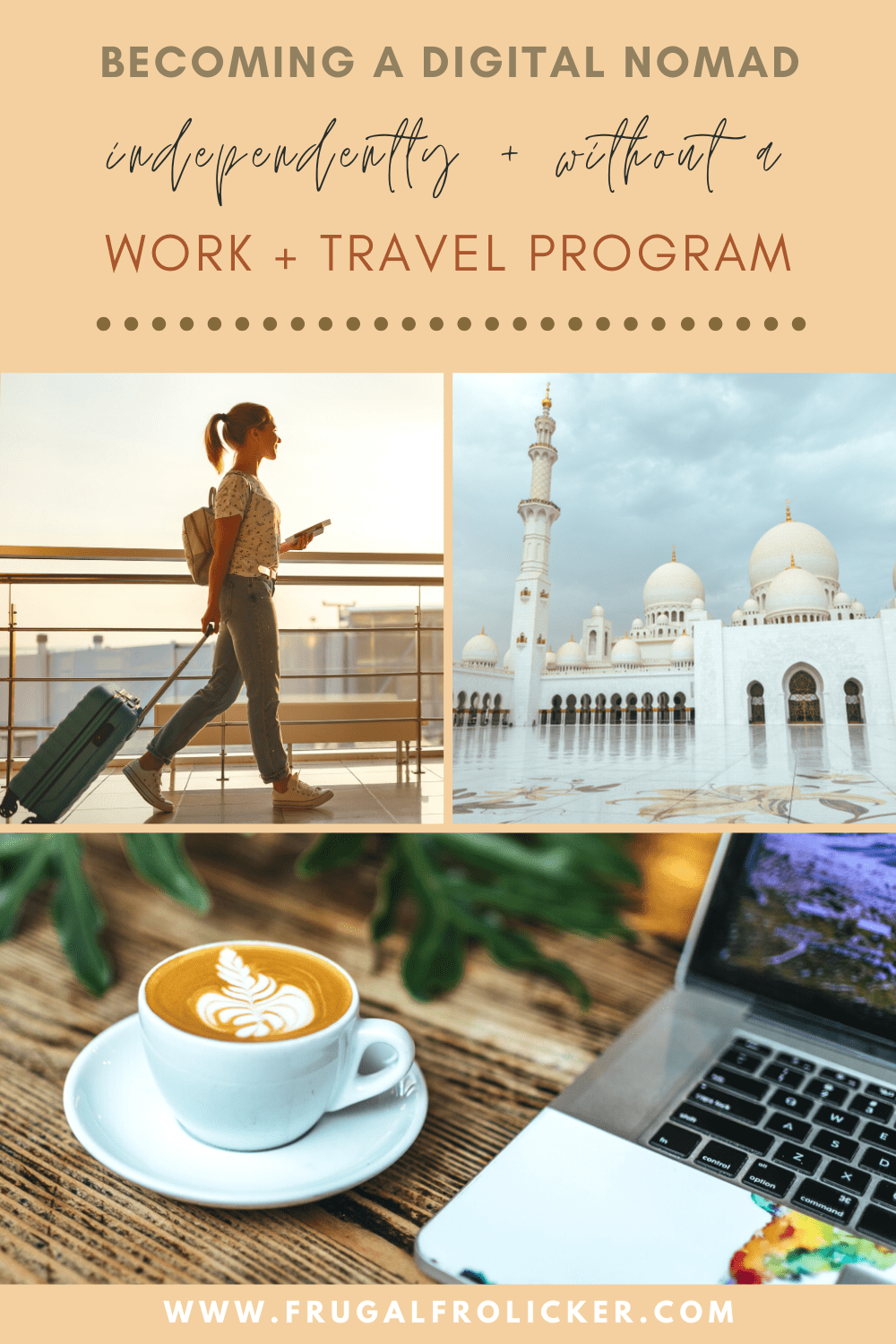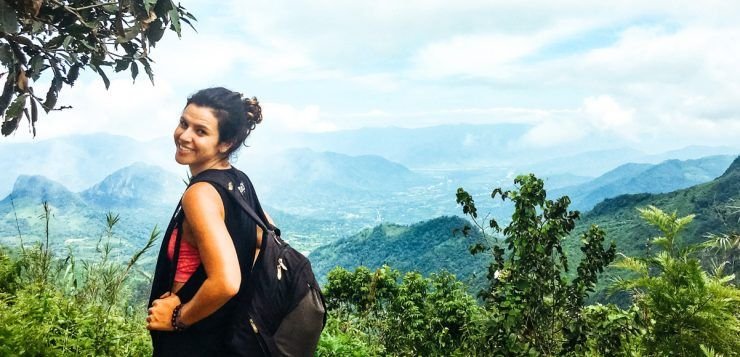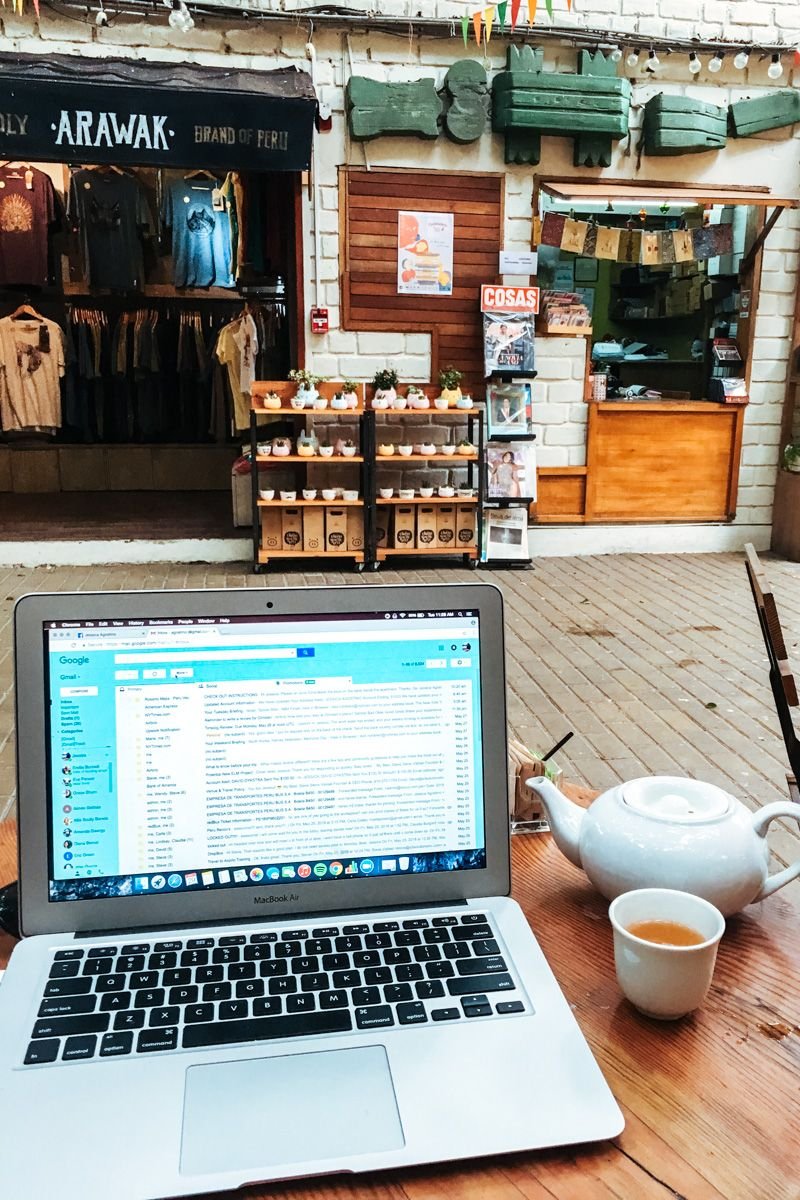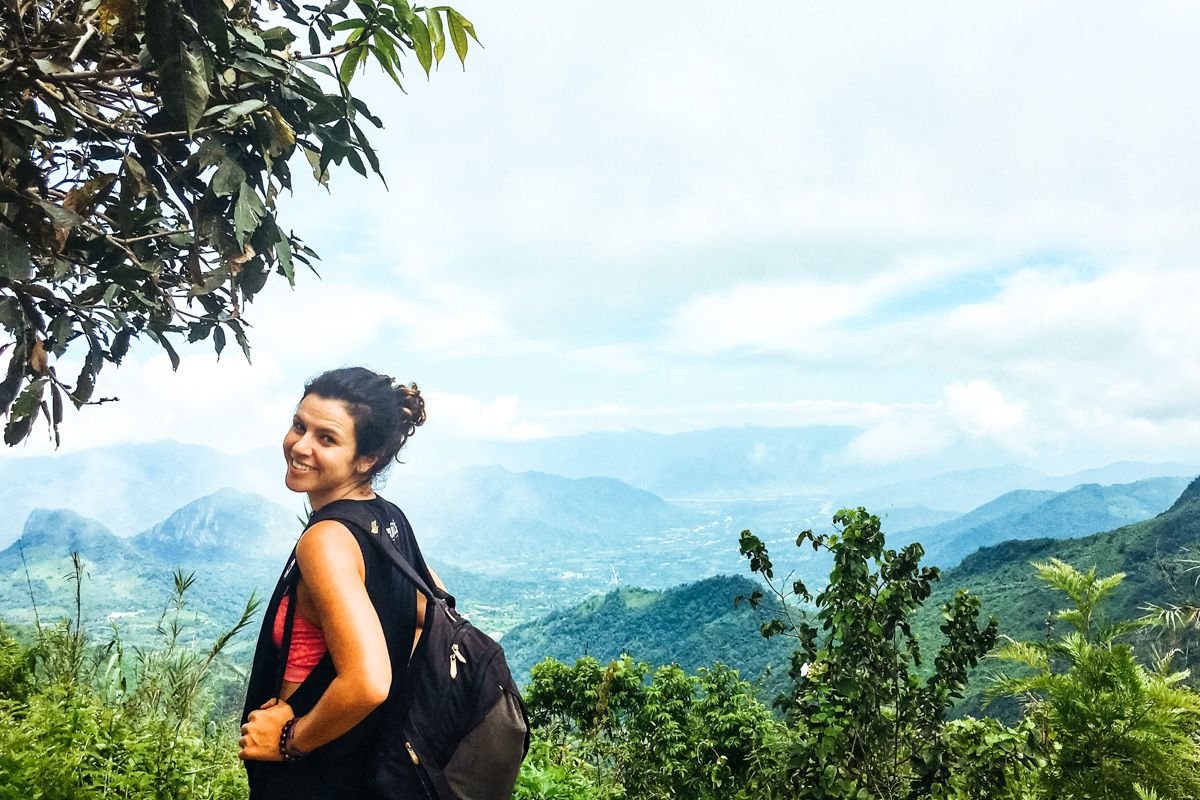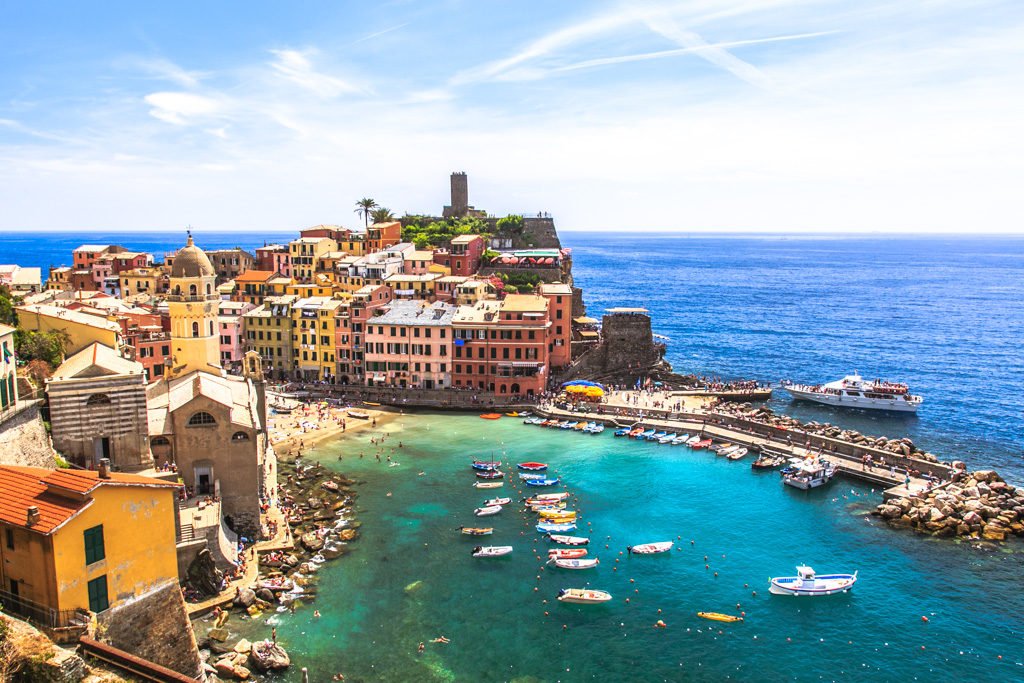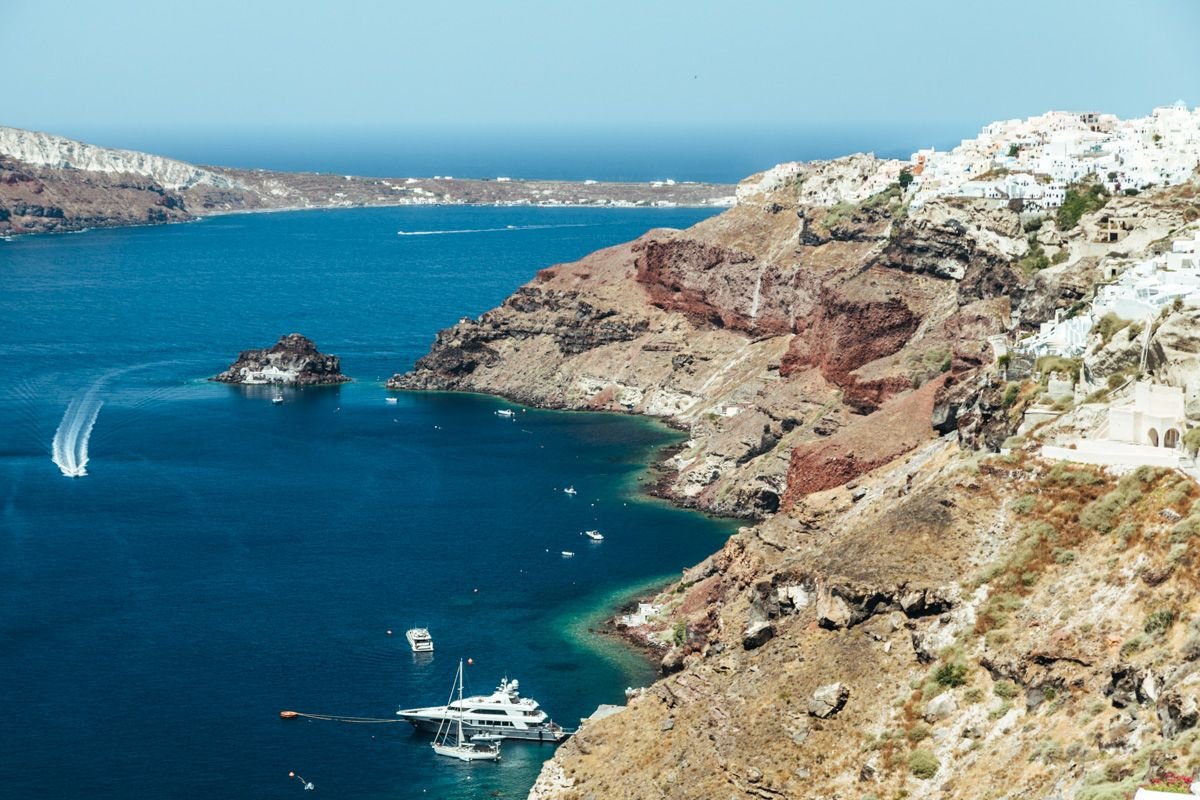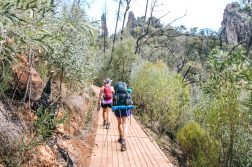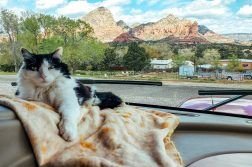This post was last updated on 2024 April 8
This article on Why You Don’t Need A Work And Travel Program Like Remote Year To Become A Digital Nomad may contain affiliate links. If you click and make a purchase using these links, I will make a small commission at no extra cost to you. Thanks so much for supporting Frugal Frolicker! :)
This is a guest post by Jessica Agostino of Jagsetter.
The first 4 photos are from her; the remaining photos are by Lindsay.
—
I’ve been a Digital Nomad for two years. Before I became a digital nomad, I lived in New York City and worked as an event manager for a media company. I enjoyed a lot about my pre-nomadic life. I had a great job, the best friends and family nearby, and I liked living in New York because of the accessibility to new experiences that it offers.
Even though I “had it all” on paper, something was missing. I never felt settled in NYC and I think that’s because I never wanted to be. I wanted to explore the world, set my own schedule, and be the boss of my own life—all of which was impossible to do with a corporate gig.
The idea of long term travel was appealing, but it felt risky and far-fetched. I wasn’t sure how to do it without giving up the career that I worked so hard to find success in, I didn’t know how I would afford it, and I was afraid to leave my comfortable and familiar lifestyle.
Before I became a Digital Nomad, I read a lot about long-term travelers and people that lived the life of work and travel. I obsessively read articles about remote work and travel groups like Remote Year — which promised a year of glamorous travel without having to quit your job. I was (and still am) an event planner and the event-planning industry was basically non-existent in the remote-work world two years ago.
The path to remote working seemed like it would be easier if I worked in another industry; such as software engineering, etc. Establishing myself in a location independent lifestyle seemed farther fetched as an event planner, and so I delayed my decision to take the leap for about one year before deciding to finally do it.
I had two friends who successfully traveled with a remote work and travel program that was similar to Remote Year, called WyCo. They absolutely loved their experience with WyCo and said that traveling with the company changed their lives. My friends gave me the testimonials that I needed to finally give the location-independent lifestyle that I had been dreaming of a chance.
I wasn’t able to transition my corporate gig into a remote gig because a lot of my role required me to execute events on-ground — so I decided to start my own freelance event planning business with the goal of growing my client portfolio while on the road.
Within 3 months of making my decision to travel around the world with WyCo for a year, I quit my corporate job, sold most of my things and put the rest in storage, and broke my apartment lease. It was extremely difficult, sad to leave NYC but that heavy feeling was overridden by the tremendous excitement that I felt to be embarking on my dream trip — a year-long journey around the world.
My WyCo Experience
Just like Remote Year, WyCo promised to handle all of the logistics for its members. This included accommodation booking, flight booking, ground transportation, and activity planning. WyCo also guaranteed a community of like-minded people to travel with — which was the reason that I joined their remote work and travel program.
One month before I left NYC, WyCO sent me a massive resource guide that was full of things to know before setting out. I read the guide religiously while preparing for my trip. The resource guide included information such as international bank accounts to open, international phone plans to purchase, what to pack for a year-long journey, and more.
After months of preparation, I finally set out to my first destination of the trip: Lima, Peru. I landed in Lima at around 2 AM local time. I still remember the feeling of sheer joy and excitement that I felt when I arrived. I was overwhelmed by the stark difference in culture as soon as I walked off the plane. I was hounded by what seemed like hundreds of men holding signs and asking me in Spanish if I needed a taxi. I was exhausted and out of my element, slightly scared and very excited to head to my accommodation and meet the rest of the WyCo group.
I arrived at my house in Lima at around what was now 3 AM and was greeted by a girl named Theresa, who would be my roommate for the month in Lima. Theresa was a member of WyCo and a digital nomad herself. We had a glass of wine, talked about how excited we were for the year-long journey around the world that we were about to embark on, and then went to bed. I was so satisfied and thrilled to begin my journey as a digital nomad and travel the world, “I finally made it!”, I thought and went to sleep.
I woke up at around 5 AM and immediately checked my email before leaving my bed. The first email that I saw was from the WyCo founder. It said, “URGENT NEWS Regarding WyCo.” I opened it and read that WyCo was going bankrupt and the year-long tour that I was about to embark on was canceled before it even began.
WyCo had been running approximately five world tours at the time, with about 30 members in each tour and each member lost their deposit—which ranged from $1K to a whopping $10K per member. On top of the financial loss, we felt shocked, confused, and unsure of what to do next.
Everyone in the group ended up making different decisions regarding what to do next. Some went home, some changed their itineraries, and stayed in South America. I decided to travel with a group of three other digital nomads from the group who all shared the same interest as me — which was to continue on the itinerary as we had planned but to go it alone, without the comforts of WyCo to plan the logistics for us.
Navigating Digital Nomad Life Without a Work and Travel Program
My new friends and I traveled as a group of four for a year together. It wasn’t perfect; we made a lot of mistakes along the way, but we had an incredible time. We realized throughout our journey that we didn’t need WyCo after all. Living the life of a digital nomad is 100% doable alone.
Here are some tips for living the life of a digital nomad independently, without the help of a remote work and travel program like Remote Year:
Budgeting For Your Trip
A remote work and travel program typically charges a sum of around $2K/month for accommodations, ground transportation, flights to/from the destination, and a co-working space. Most remote work/travel companies build their itineraries around low-cost destinations (i.e., any country in Southeast Asia) so that they can generate a profit from their members.
My total cost for the logistics that WyCo would have covered for me averaged around $1K – $1.5K. That’s a $500 – $1,000 savings per month by choosing to go it alone.
The cost of traveling will vary per person; but generally speaking, you’ll save a good chunk of money if you travel on your own.
It’s Easier To Meet Like-Minded People Than You’d Think
My #1 reason for joining a remote work and travel program was so that I would have a group of like-minded people to travel with for the year. To me, this meant two things: safety and companionship.
What I didn’t realize before embarking on my trip was that it’s easy to make friends while traveling everywhere. I was lucky because I did have three friends with me but we made tons of new digital nomad friends along the way.
Some tips for making building your friend community while traveling are:
Go To Cities That Other Nomads Are In
Websites like nomadlist.com rank the top cities in the world for digital nomads. This is a great tool for identifying where like-minded nomads will be prior to booking your trip.
Join The Digital Nomad Facebook Group For The City That You’re In
Almost every major city has a thriving digital nomad community now. Many digital nomads turn to Facebook to network and find one another. Before I went to each city, I joined the relevant Facebook group and networked with fellow nomads in the area. This is also a great way to learn about local and relevant-to-you-tips (such as where the best co-working space is when/where there are free workout sessions, etc.).
Network in Co-Working Spaces
Don’t be afraid to network with other nomads in co-working spaces. It’s one of the best ways to meet other nomads. If you’re too shy to interrupt someone during the work-day, then check to see if the co-working space that you’ve joined hosts a networking party (most do).
Hostels Are a Great Way to Meet Other Travelers
Hostels are a great way to meet fellow travelers, though not all of them will be digital nomads. Hostels don’t have to mean sharing a dorm room and partying 24/7, either. There are many great hostels all around the world that offer private rooms—which can give you distance from the party scene and access to the community activities when you need it.
Even if you don’t stay in a hostel, you can still go to a hostel party and meet fellow travelers that way.
How to Find Good Wi-Fi
Finding good wi-fi is universally one of the biggest universal struggles amongst the nomad community. As long as you visit major cities, you should be able to find co-working spaces, coffee shops, or accommodation with stable wi-fi.
Always make sure that the accommodation that you book has good wi-fi so that if you can’t find an external working space, you’ll at least be able to work from your living space. I usually send prospective Airbnb hosts a link to speedtest.net and ask them to run the test with their network and send it back to me, so that I know that the internet is reliable before booking the place.
Building Your Own Itinerary
A big advantage of traveling without a remote work/travel group is that you can make your own itinerary. This means that you can also potentially see more places and save money while you’re at it. Your opinion of what you want to do may change throughout your travels, and you’ll love having the flexibility to change your mind and go to an alternate location on a whim, if need be.
How to Find Accommodation
Each nomad has a different preference for accommodations that they like to stay in. I personally like staying in apartments that I source on Airbnb — which has been useful in almost every country that I’ve been to.
Some nomads prefer to stay in hostels to save money and for a sense of community. Selina is a great brand that has hostels with co-working spaces all over the world. A great resource for finding and booking a hostel is hostelworld.com.
Booking.com is a great tool for booking guest houses and cheap hotels all around the world. I usually use this tool when I’m in Southeast Asia or going on a short side-trip and need to find an affordable hotel.
Summary
When I left NYC two years ago, I looked at it as a “pause” to my life as it was. Now looking back, it was the end of one chapter and the beginning of the next. I never actually went back for any of the items in storage and I’ve only visited NYC a few times to see my friends and family there. Two years later, I’m still nomadic and loving it.
I hope that you find these tips encouraging and that if you’re considering life as a nomad, that you seriously consider doing it without a remote work and travel program. I highly recommend trying this lifestyle out solo – it will save you a lot of money, is flexible, and will provide you with tons of great experiences.
